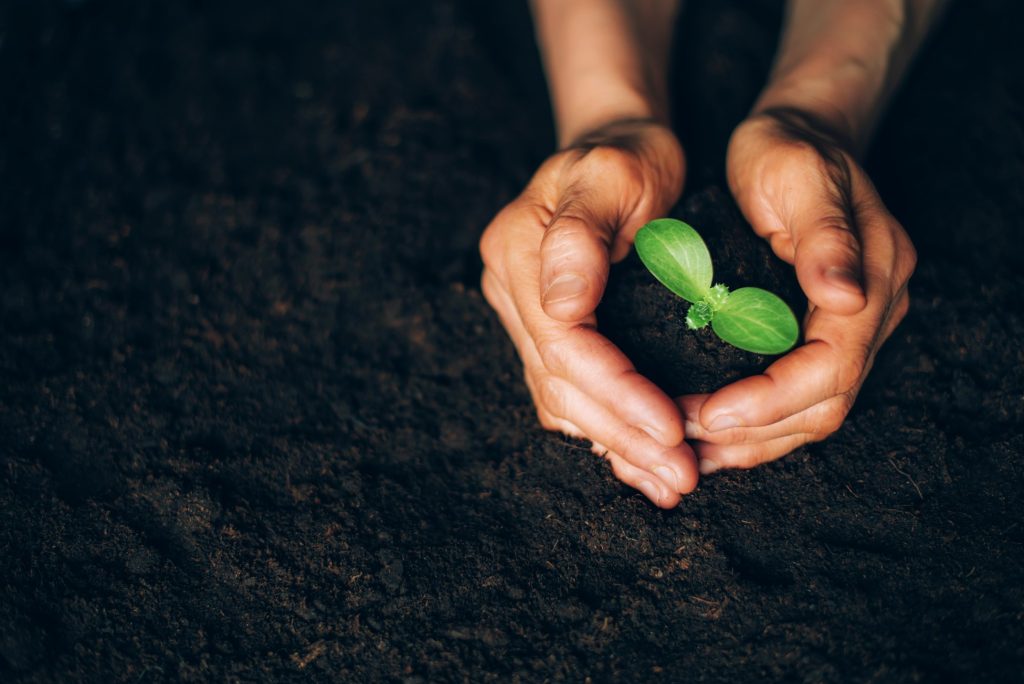Happy Earth Day Everyone!

In celebration of Earth Day, we are excited to highlight the importance of plants and their role in supporting wildlife. The biggest secret to success is choosing Native Plants for your outdoor pots, balcony, yard or garden this year.
By choosing plants that originated from your geographic area, you help support your regional ecosystem and offer pollinators, birds, butterflies and other healthy critters needed food, pollen and building materials for their survival.
Not Sure What Plants are Native to your Region?
When we first moved into our house 24 years ago, we just planted flowers and grasses that we found visually appealing and could tolerate the heat of our region. Our house and my office are situated on an acre of land, so there was lots of space to plant a wide variety of foliage and trees to provide shade and beauty. But, we weren’t yet tuned-in to the native plant and animal habitats of our new home.
To be honest, 25 years ago, I didn’t give much thought to supporting native plants or animals.
Over time, I started learning about the impact habitat loss for creatures and pollinators. I started exploring plants that support our local area and found a native nursery nearby my home. Now, my husband and I are working hard to make our land a nourishing and welcoming space for pollinators, birds, amphibians, lizards and more. With the help of a few great websites and a visit to our local native nursery, we now bring home plants that support our community of animals and are drought tolerant at the same time.
In addition to plants, providing a water source can be a game changer for thirsty pollinators, birds and others animals too. Simply placing a bowl of water, bird bath or even creating a small pond can make a big difference in supporting a variety of wild life. Last year, we dug a frog pond and within a few short weeks, frogs, toads and birds arrived to enjoy a drink, take a swim or a bath. A year later, our pond is teaming with tadpoles, mosquito fish, water beetles, dragonflies and lots of microscopic creatures. This lively pond brings me, my family and our visitors an abundance of joy and wonderment. Plus, we appreciate how connecting with nature improves our mental health and helps with stress management and well being.
For people with diabetes or other chronic health issues, caring for plants and living beings can be very therapeutic and gratifying, and it doesn’t have to be complicated. Just take one step at a time.
Common Native Plants in the U.S.
I encourage you to check out the article, Audubon – 20 Common Types of Native Plants, which includes a helpful list of 20 different native plants that support wildlife in the United States. You can cross-reference plants with your zip code finder above to see if these would be a good addition to your neighborhood. For example, in Chico, California, the California Christmas-Berry is a great food source for local birds and is drought tolerant.
In general, consider adding these native plants to your wish list:
Trees: Oaks, Pines, Dogwoods and Willows.
To bring color to your yard, porch or planters try planting Sunflowers or Coneflowers.
Treats for you and our bird friends include Blueberries, Elderberries, or Service berries.
Websites to Discover Native Flora for Your Region
Audubon has a great tool, Audubon – 20 Common Types of Native Plants, in which you can enter your zip code to see which plants are native to your locality.
The National Wildlife Federation (NWF) also provides a wonderful website, Native Plant Finder – NWF, to determine by zip code, native plants for your area. You can create and save your own personalized plant list too.
The Plant Native website, provides a listing of native nurseries throughout the U.S.
I also encourage you to visit www.Earthday.org and Project Regeneration for other great ideas to improve the health of our planet.

Each of us can make a difference
Many of us feel discouraged about what is happening to our planet, but there is a rising awareness of our impact and also a rising belief in our ability to protect this beautiful earth. Each action matters. Your action matters. And you can just start by planting one bush, flower, tree, plant or another acting on another idea that is meaningful to you. Thank you in advance for your action.









